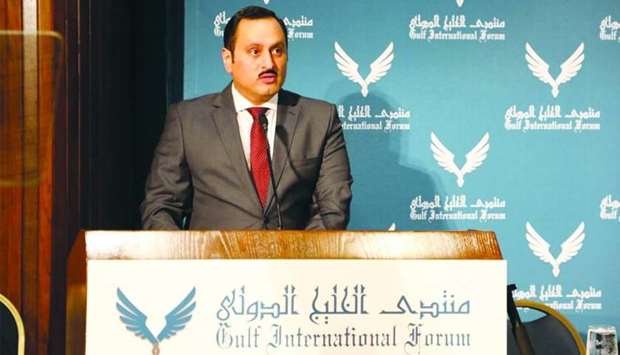Qatar, which has emerged stronger and more economically independent than ever before, has begun to fast-track the implementation of measures aimed at supporting the private sector and establishing incentives to attract foreign direct investments (FDIs), according to a top government official.
Moreover, the government is pursuing the implementation of major development plans which have cemented Doha's position as one of the region’s most stable, competitive, and growth-oriented economies, Sultan bin Rashid al-Khater, undersecretary of the Ministry of Commerce and Industry, told the second Gulf International Forum at the National Press Club in Washington, DC.
Qatar has developed legislations regulating the business environment to allow foreign investors up to 100% ownership in all sectors, and economic and commercial activities in addition to allowing non-Qatari investors and commercial companies to invest in the realty sector and own properties in several vital economic and tourism areas across the country, he said.
Qatar has recently approved a draft law regulating public and private partnerships with the aim of offering new opportunities to the private sector and involving companies in the implementation, construction, financing and operation of the State's various facilities.
"Qatar has also streamlined procedures and regulations for the issuance of commercial and industrial licences and the development of services and infrastructure to meet all investors’ needs," al-Khater said.
Stressing that Qatar has emerged stronger and more economically independent than ever before, he said the blockade has presented an opportunity for Qatar to make its economy more accessible to the world and to establish new shipping routes with its major trade partners.
Qatar’s economy also witnessed a significant boost as new national companies went public and more than 823 Qatari businesses were established in the field of food production, services, and manufacturing industries, he said.
Qatar is also expanding industrial cities to feature 769 industrial land plots as work continues to complete 337 projects in the manufacturing sector and create promising investment opportunities in non-oil sectors, al-Khater added.
Quoting the World Bank’s latest report, he said Qatar’s economy is expected to grow by 3.4% by 2021, driven by higher growth in the services sector as Qatar readies to host the 2022 FIFA World Cup.

